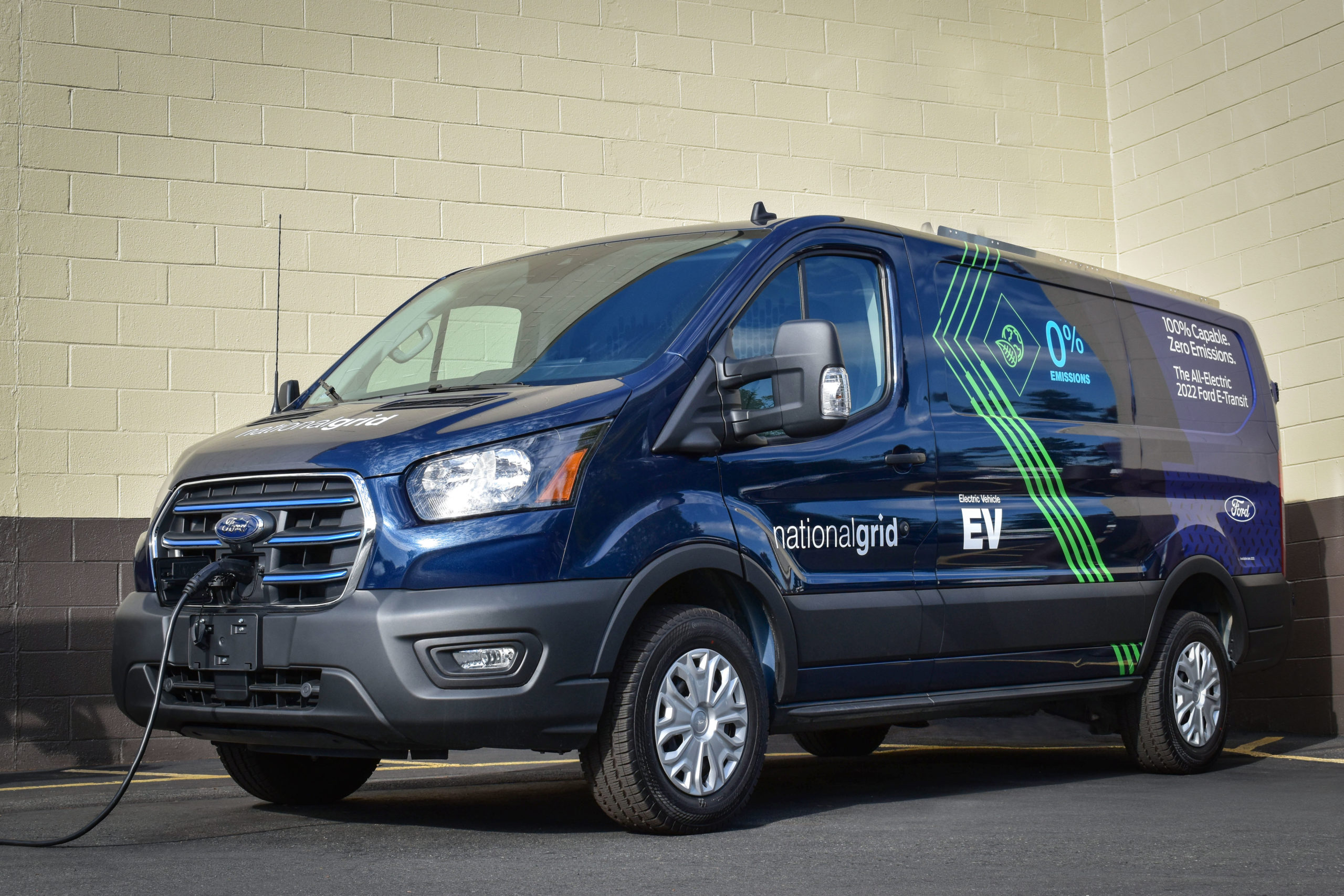Through a Ford Pro pilot program, companies nationwide, such as Penske Truck Leasing and National Grid, have taken delivery of preproduction units of the 2022 Ford E-Transit van, the all-electric version of the Ford Transit, with plans to use early learnings that will help deployment into their operations when the vehicle arrives to market early next year.
Operating in fleets that span industries such as rental, delivery, service, maintenance, telecom and utilities, these E-Transit pilot vans will give companies the opportunity to experience how battery-powered vehicles coupled with Ford Pro Intelligence and Ford Pro Charging solutions can help improve fleet efficiencies, the automaker said.
Penske plans to evaluate and validate E-Transit van capabilities, driving experience and charging strategy for specific applications, including rentals to small- and medium-sized commercial businesses, the company said.
“We’re excited to collaborate with Ford Pro on the introduction and real-world testing of these new electric vehicles as the first truck rental and leasing company to do so,” said Art Vallely, president, Penske Truck Leasing. “We expect to see strong utilization and interest from customers making final-mile deliveries, regional deliveries, and eventually consumer use for smaller household moves.”
As part of the pilot program, Penske has deployed an E-Transit van in the Reading, Pennsylvania, area. Penske’s long-term electric vehicle plans include adding electric vans throughout its wider network, including Southern California.
“Our customers are telling us that they have ambitious sustainability goals to reduce their fleets’ carbon emissions through the integration of all-electric vehicles,” said Ford Pro CEO Ted Cannis. “E-Transit commercial vans and the supporting Ford Pro ecosystem, especially end-to-end charging, play a critical role in helping achieve those goals and transforming their business operations without disruption.”
The E-Transit van is designed to serve a wide range of commercial industries, providing customers a choice of eight configurations, including a cargo van with three roof heights and three lengths, plus chassis cab and cutaway versions, the company said.
Participating companies will deploy vehicles in specific applications to evaluate performance, identify the best route types and explore charging solutions while connected to the Ford Pro ecosystem.
National Grid, a global energy management company and operator of several utility conglomerates, recently took delivery of a preproduction low-roof E-Transit cargo van that it will test on regular home meter-reading routes to ensure it can perform the same operations now performed by the company’s gas-powered vehicles.
Ford Pro will use feedback and data from the pilot program to validate real-world vehicle performance across a broad range of use cases, upfits, temperatures and driving environments to continue to refine products and develop additional training tools.
“Beyond supplying all-electric vehicles to customers, Ford Pro is helping businesses determine better solutions for energy management and fleet efficiency,” said Cannis. “Our services link to the vehicle and into the entire operational environment of the business, which is the only way EVs will stick. Anything else is just disruptive to their business bottom line.”
